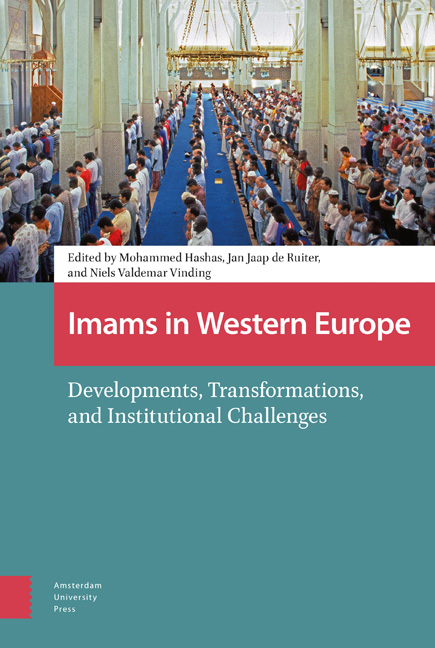16 - Re-examining the Decline Narrative: Cambridge Muslim College and the Changing Face of Imam Training in Britain
Published online by Cambridge University Press: 06 January 2021
Summary
Abstract
The Cambridge Muslim College was established in 2011 with the purpose of giving a contextual ‘update’ to the heavily text-based training of British Muslim seminary graduates. It has been called a ‘finishing school’ that provides a higher education experience for graduates of the traditional Indian-style Darul Ulooms in the United Kingdom. The college offers a one-year programme for both men and women with a curriculum emphasizing citizenship, political and cultural awareness, interfaith understanding, community building, counselling, and other pastoral skills. This chapter discusses the Cambridge Muslim College programme and how it relates to earlier, more traditional imam-training programmes in the United Kingdom.
Keywords: Cambridge Muslim College, Darul Ulooms, imam training in the United Kingdom, Deobandi school
Introduction
It is graduation day at the Cambridge Muslim College, marking the end of a year of intense intellectual growth and personal introspection for the cohort of students receiving diplomas in Contextual Islamic Studies. Like other graduation ceremonies held every year in Cambridge, this one is marked by grandeur and solemnity; unlike the other ceremonies held in this scholarly city for centuries, however, the graduating students mounting the stage to receive their certificates are all bearded Muslim men wearing topi and jubba and Muslim women wearing niqāb or jilbāb.
‘I have been pleasantly surprised over this year, in my engagement with the graduates’ a research fellow of the college commented in his speech. ‘The Darul Ulooms [religious seminaries] have taught their students adab [‘good etiquette’] and it's important not to throw the baby out with the bathwater. This institution is not here to correct or replace the Darul Uloom learning, it is here to augment and to take it further.’
To ‘throw the baby out with the bathwater’ suggests discarding what is valuable along with what is no longer useful. This is a theme that has preoccupied attempts at institutional and religious reform in the Muslim world over the last one-and-a-half centuries. But what exactly is considered to be the ‘baby’ and what constitutes superfluous ‘bathwater’ is subject to constant debate. In the context of Islamic higher education in Britain, the changing roles of imams and ulama have been central to this debate.
- Type
- Chapter
- Information
- Imams in Western EuropeDevelopments, Transformations, and Institutional Challenges, pp. 315 - 336Publisher: Amsterdam University PressPrint publication year: 2018



